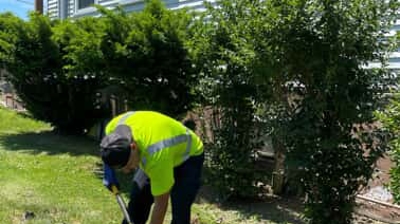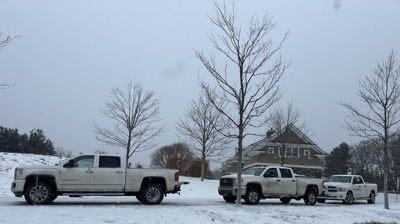When land is purchased, transferred, or developed, a percolation (perc) test may be required to evaluate the soil's drainage capabilities. This test is a crucial step for ensuring that a property can safely and legally accommodate a septic system. Whether you're a real estate professional, a property owner or investor, knowing how a perc test works and when it's needed is essential.
What is a Perc Test?
A perc test measures how quickly soil absorbs moisture. Specifically, it gauges the time it takes for water to drain through the soil, a critical factor for properties that use septic systems. These tests help determine where to install drain fields, or other septic components, ensuring the system functions properly.
Most perc tests are performed by professionals specializing in septic systems or land surveying.
When Do You Need a Perc Test?
Imagine placing a septic tank in soil that doesn’t drain well—it could lead to costly and unpleasant problems. Perc tests help prevent this by identifying suitable locations for septic systems. Many local governments require these tests before installing new septic systems or replacing old ones.
Septic tanks separate wastewater into solids and liquids, with the liquids filtering into the surrounding soil. For this process to work efficiently, the soil must have good drainage. During a perc test, specialists assess factors like soil composition, slope, and the presence of sand, gravel, or clay. Soil with high clay or rock content usually isn’t suitable for septic systems due to poor drainage.
For rural properties without access to municipal sewage systems, perc tests are especially important. A failed test can limit where homes can be built, making it a critical step for developers and investors.
How are Perc Tests Conducted?
A licensed septic tank specialist or land surveyor typically performs a perc test. While professional, official tests are required, the process is relatively simple. The specialist digs one or more holes in the ground and observes how long it takes for water to drain, calculating the "percolation rate" by dividing the amount of water by the time it takes to drain.
In more complex tests, the specialist may:
- Dig holes in the proposed drain field.
- Remove loose soil and add gravel.
- Pre-soak the soil to simulate septic system conditions.
- Measure water levels over time to determine the percolation rate.
While perc tests can seem straightforward, home test kits aren’t always reliable. Where and how holes are dug, and how results are interpreted, can significantly impact the outcome. That’s why it’s advisable for property owners, investors, and developers to hire a specialist.
County health and environmental agencies often have specialists available for perc tests, or you can hire independent engineers. Regulations may also dictate how often tests must be repeated, usually every 2 to 5 years.
Legal Considerations for Perc Tests
Different jurisdictions have varying laws and regulations regarding perc tests. Before scheduling a test, check with your county health department for any local restrictions or requirements. For instance, some counties require a health department representative to witness the test, while others may only allow licensed professionals to perform the test.
Additionally, regulations may determine how frequently tests must be repeated and how many can be conducted in a short period. Most counties require perc tests every 2 to 5 years, but the exact timeframe can vary.
How Much Does a Perc Test Cost?
The cost of a perc test varies depending on the location and complexity of the test. Labor costs typically range from $100 to $200 per hour, with some counties offering flat fees around $300. However, costs can increase for more challenging sites, with tests sometimes exceeding $750.
The size of the land being tested also affects the cost. For example:
- 0.25 acres: $150-$250
- 0.5 acres: $300-$500
- 1 acre: $600-$900
The depth and width of the test holes also impact the price, with costs increasing by $100 to $150 for each additional foot of depth or width.
Additional costs may include permit fees, technician fees, septic planning requirements, and location-specific challenges like testing on slopes or various types of soil.
When is the Best Time for a Perc Test?
Perc tests are best conducted during the driest part of the year, typically late summer or early winter, when the water table is at its lowest. Dry soil will absorb water more quickly, providing more accurate results. If you must perform a test in cold weather, ensure the excavation goes below the frost line for accurate results.
Understanding Perc Test Reports
A percolation test report provides the official results of your soil’s drainage rate. These reports are often required for septic system planning and become part of the public record with your local health department.
The report includes the test date, the technician’s name, and the results. Look for a percolation rate between 1 and 30 minutes per inch of soil, as this is ideal for septic systems.
What Happens if Your Soil Fails the Test?
If your soil fails a perc test, it doesn’t mean your land is unusable. You can order another test or consult with your health department for previous records. Sometimes, moving the test site or digging deeper can yield better results. Alternative solutions include installing a larger septic tank, using alternative septic systems, or connecting to municipal water systems.
Conclusion
Perc tests are a critical part of land development, especially for properties without access to municipal sewage systems. They ensure that septic systems function properly and meet legal requirements. Before proceeding with land development, ensure you understand the regulations and requirements for perc tests in your area. If you are in need of a Perc test or looking for an assessment of your drainfield, or the installation of your new septic system – Call Wind River Environmental or complete the Contact Us form and we will be happy to schedule these services with you.




